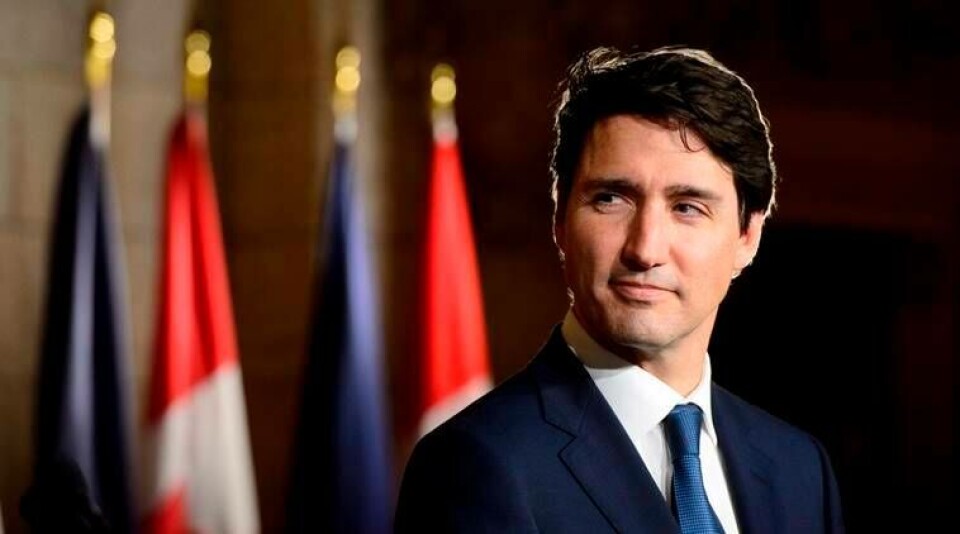
Aquaculture ideal for Canada’s ‘clean growth’ ambition, Trudeau told
Expanding Canadian aquaculture is fully compatible with the government’s requirement for “clean growth” to create jobs and power the country’s economic recovery, Prime Minister Justin Trudeau has been told.
In an open letter to Trudeau, Canadian Aquaculture Industry Alliance (CAIA) president and chief executive Tim Kennedy highlighted both the economic value and low carbon credentials of fish, shellfish and seaweed farming.
He quoted paper by the multi-national High-Level Panel on a Sustainable Oceans Economy (HLP) which stated that “the largest potential (carbon reduction) gains for food production lie in the sustainable expansion of marine aquaculture”.
A champion for fish farming
And he repeated a call by the aquaculture sector to “formally identify a federal department to champion our sustainable growth, and for this department to develop a plan and sustainable growth strategy”.
The CAIA said in a previous open letter to Trudeau that the Department of Fisheries and Oceans (DFO), which regulates the industry, was “structurally and culturally unable” to champion fish farming development.
That accusation was made following a decision by fisheries minister Bernadette Jordan not to renew licences for 19 salmon farms in the Discovery Islands in British Columbia, reached after consultation with seven First Nations in whose territories the farms are situated. The First Nations blame lice from salmon farms for a decline in wild salmon stocks, despite nine separate scientific studies concluding that the farms posed only a minimal risk to the fish.
Job losses
The BC Salmon Farmers’ Association has warned that the closures threaten 1,500 jobs, something that might give Trudeau pause for thought following a decision by new US President Joe Biden to block the Keystone-XL pipeline linking the oil sands in the neighbouring province of Alberta to refineries in Illinois and Texas. The decision has reportedly led to the immediate loss of 1,000 construction jobs.
The salmon industry is also facing a government demand to “transition” all net pen salmon farming in BC into closed containment, possibly by 2025.
Read the full text of the CAIA letter here.






















































